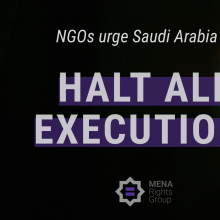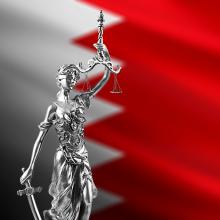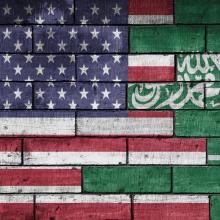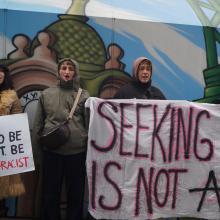July 24, 2020
23 July 2020
To: States Parties to the International Covenant on Civil and Political Rights
RE: Call to States Parties to take into account gender, competence and independence when electing new members to the Human Rights Committee
Dear Permanent Representatives of the States Parties to the International Covenant on Civil and Political Rights,
The undersigned NGOs and the GQUAL Campaign call upon States Parties to take into account gender, competence and independence when electing members of the United Nations Treaty Bodies.
In September 2020, during the 38th Meeting of States Parties to the International Covenant on Civil and Political Rights (ICCPR), States Parties will elect nine experts to the Human Rights Committee (HRC). This election will provide States with the opportunity and the responsibility to ensure gender balance within the HRC, and to guarantee that elected experts are knowledgeable, experienced, and independent.
In accordance with ICCPR Article 28, “The Committee shall be composed of nationals of the States Parties to the present Covenant who shall be persons of high moral character and recognized competence in the field of human rights, consideration being given to the usefulness of the participation of some persons having legal experience,” and members “shall serve in their personal capacity.” General Assembly Resolution 68/268 (2014), on Strengthening and enhancing the effective functioning of the human rights treaty body system, reaffirmed the critical importance of ensuring the independence and impartiality of treaty body members, and encouraged States to take due consideration of, inter alia, balanced gender representation in the election of those members.[1] This has also been consistently underlined by the Secretary General in his reports on the status of the human rights treaty body system, issued as part of the treaty body strengthening process.[2]
However, the current composition of the HRC shows that there is no gender balance in its membership, with only five women[3] on the 18-member Committee. In the last election in 2018, women members decreased in number from eight to six, which shows a concerning downward trend.
The gender imbalance in the composition of the HRC is disturbing for a number of reasons. First, the HRC oversees compliance of a core treaty of the UN human rights system, that is considered part of the Universal Bill of Rights, together with the Universal Declaration of Human Rights and the International Covenant on Economic, Social and Cultural Rights. Second, the HRC is one of the oldest monitoring bodies in the universal system, covers a large scope of rights, and has a very rich legal practice and jurisprudence. Finally, in electing members, States parties must interpret and apply the principle of gender equality, which is one of the core principles of the ICCPR that cuts across all other provisions and guides the HRC’s work. As highlighted in the HRC’s General Comment No. 28 (2000): Article 3 (The Equality of Rights Between Men and Women), this provision together with Article 2 apply to all the provisions of the ICCPR and requires States parties to remove “obstacles to the equal enjoyment of such rights, the education of the population and of State officials in human rights, and the adjustment of domestic legislation so as to give effect to the undertakings set forth in the Covenant” and to “not only adopt measures of protection, but also positive measures in all areas so as to achieve the effective and equal empowerment of women.”[4]
Six women and nine men have been registered as candidates by the Committee’s Secretariat. We note that the lower number of women candidates suggests that the need to ensure gender balance and move towards gender parity has not been duly prioritized in national nomination processes. Therefore, unless it is specifically prioritized by Member States in the voting stage, gender balance may not be achieved.
In her recent statement on the review of UN Treaty Bodies, the UN High Commissioner for Human Rights mentioned the idea of an independent vetting process for elections.[5] Independent vetting could contribute to improve the gender balance, as evidenced in other international Human Rights mechanisms including the UN Special Procedures.
We strongly call upon States Parties to uphold the fundamental principles of the ICCPR and other human rights treaties in the context of the election and ensure equality between men and women in the HRC’s membership. We also call upon States Parties to promote and uphold the highest standards of membership and vote for candidates who are independent, and have proven knowledge, experience and expertise on the scope of the ICCPR, including through the establishment of an independent vetting process as suggested by the High Commissioner.
Sincerely,
American Civil Liberties Union (ACLU)
Amnesty International
GQUAL Campaign
Human Rights in China
ILGA World
International Service for Human Rights (ISHR)
MENA Rights Group
REDRESS
TB-Net (Centre for Civil and Political Rights (CCPR Centre); Child Rights Connect; Global Initiative for Economic, Social and Cultural Rights (GI-ESCR); International Disability Alliance (IDA); International Movement Against All Forms of Discrimination and Racism (IMADR); International Women’s Rights Watch Asia Pacific (IWRAW-AP); and World Organization Against Torture (OMCT))
Women's Link Worldwide
[1] GA Assembly Resolution 68/268, A/RES/68/268, 21 April 2014.
[2] See, inter alia, Report of the Secretary-General on the status of the human rights treaty body system, A/74/643, 10 January 2020, para. 71.
[3] In December 2019 Ms. Ilze Brands Kehris resigned, lowering the number of women in the HRC to five. The current five women members of the HRC are Tania Abdo Rocholl, Marcia Kran, Photini Pazartzis, Vasilka Sancin, and Hélène Tigroudja.
[4] HRC, General Comment No. 28, Article 3 (The equality of rights between men and women), HRI/GEN/1/Rev.9 (Vol. I), 29 March 2000, para. 3.
[5] Michele Bachelet, Statement on Strengthening the Treaty Bodies, guardians of the world's human rights covenants and treaties, 2 June 2020.






